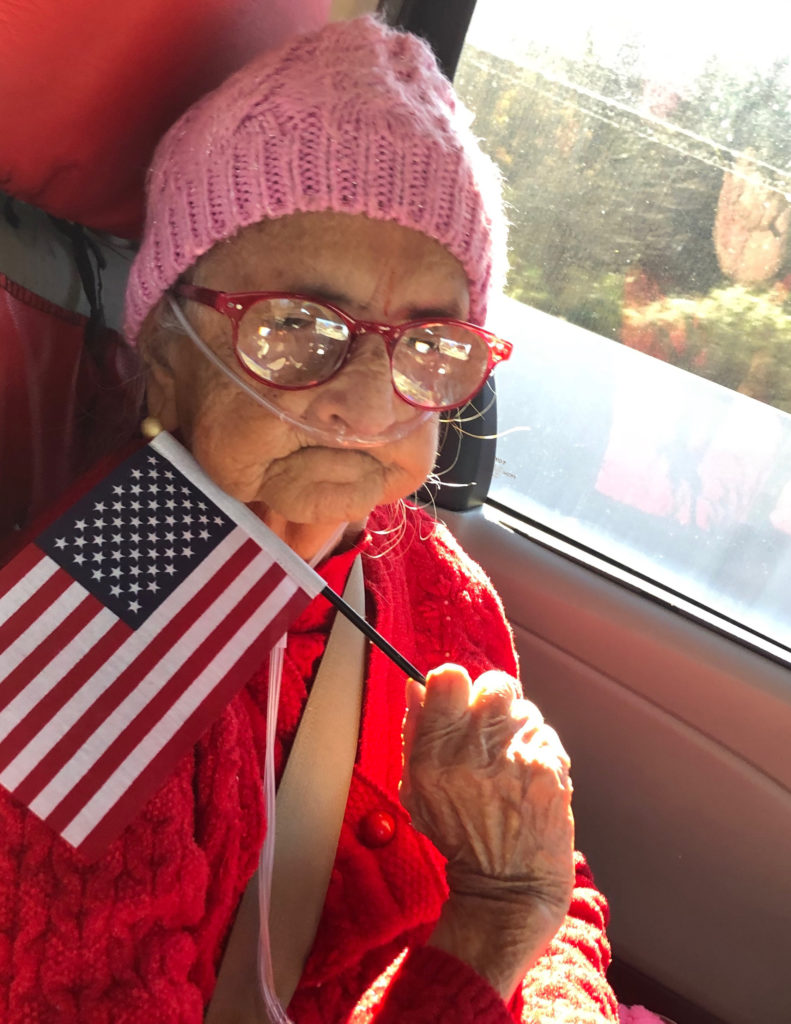‘In Sickness and In Health’: Local Couple Faces End-of-Life Journey with Courage
“In sickness and in health” are five simple words 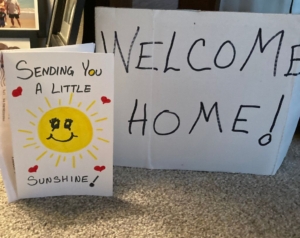 couples pledge on their wedding day. These words become the most sacred of promises during challenging times.
couples pledge on their wedding day. These words become the most sacred of promises during challenging times.
Debra and Mike of Dauphin County have kept this vow for 57 years of marriage. During their decades together they have raised two children, hosted countless holiday meals and celebrated birthday parties in the home they have shared for 52 years. Their lives changed when the “in sickness” chapter began six years ago when Mike’s health began to deteriorate. But Debra is not alone in caring for Mike. She has the compassion and support of Homeland Hospice to help her keep her promise.
Mike has struggled with various health challenges since 2009 when he underwent heart bypass surgery. His health began to decline rapidly in 2017 when he was diagnosed with Venous Disease, which forms painful blisters and skin discoloration from his knees to his ankles. The severity of the disease makes him unable to walk without the assistance of a walker. Around this time, Mike was also diagnosed with dementia.
In November of 2022, the culmination of Mike’s illnesses led to a 10-day hospital stay. Debra and her children knew Mike could not come home and solely rely on the care of his family. Debra was aware of Homeland’s reputation for high-quality, compassionate care and explored their continuum of care services. She toured Homeland Center, a private, nonprofit retirement community in Harrisburg, as well as the organization’s outreach services.
“I wanted to know all the possible options of care for Mike’s changing health needs,” Debra says. “Homeland alleviated my concerns.”
Debra and her children decided home care would provide Mike the most comfort and peace. Debra’s son rearranged the living room for Mike’s return from his hospital stay.
“Mike’s bed faces the window so he can watch the deer outside,” Debra says. “I know this brings him joy.”
When Mike first returned home, he received palliative care services from Homeland to help manage his health issues. As his well-being continued to decline, Mike transitioned to Homeland Hospice care for his end-of-life journey.
Mike’s dementia and advanced health issues makes communication and movement very difficult. Dementia doesn’t just impact individuals with the disease. It places a significant emotional burden on caregivers, as they strive to adjust to the stages and nuances of the illness.
Through the services offered by Homeland Hospice, Mike receives routine visits from a Certified Nurse Assistant (CNA) to help with bathing and dressing as well as medication reminders and administration. Mike also has the support of a nurse and social worker to provide a complete team of support. Recently, Mike began receiving massages to relieve pain. This is part of the complementary therapies offered by Homeland Hospice.
“Everyone genuinely cares about us,” Debra says. “I no longer spend every minute of my day consumed by worry.”
In addition to medical care and support, Mike has received cards and notes of encouragement from volunteers around the country. The cards are delivered thanks to the generous efforts or Homeland volunteers and Volunteer Match, an online program to engage individuals with volunteer opportunities.
“Mike and I look forward to receiving cards,” Debra adds. “We are very grateful for this act of love and kindness.”
The support provided by Homeland Hospice brings Debra peace of mind and allows her and Mike to live each day as fully as possible.
“I appreciate every minute Mike and I have together,” Debra says. “It is in God’s hands now.”
For more information about Homeland Hospice, call (717) 221-7890.

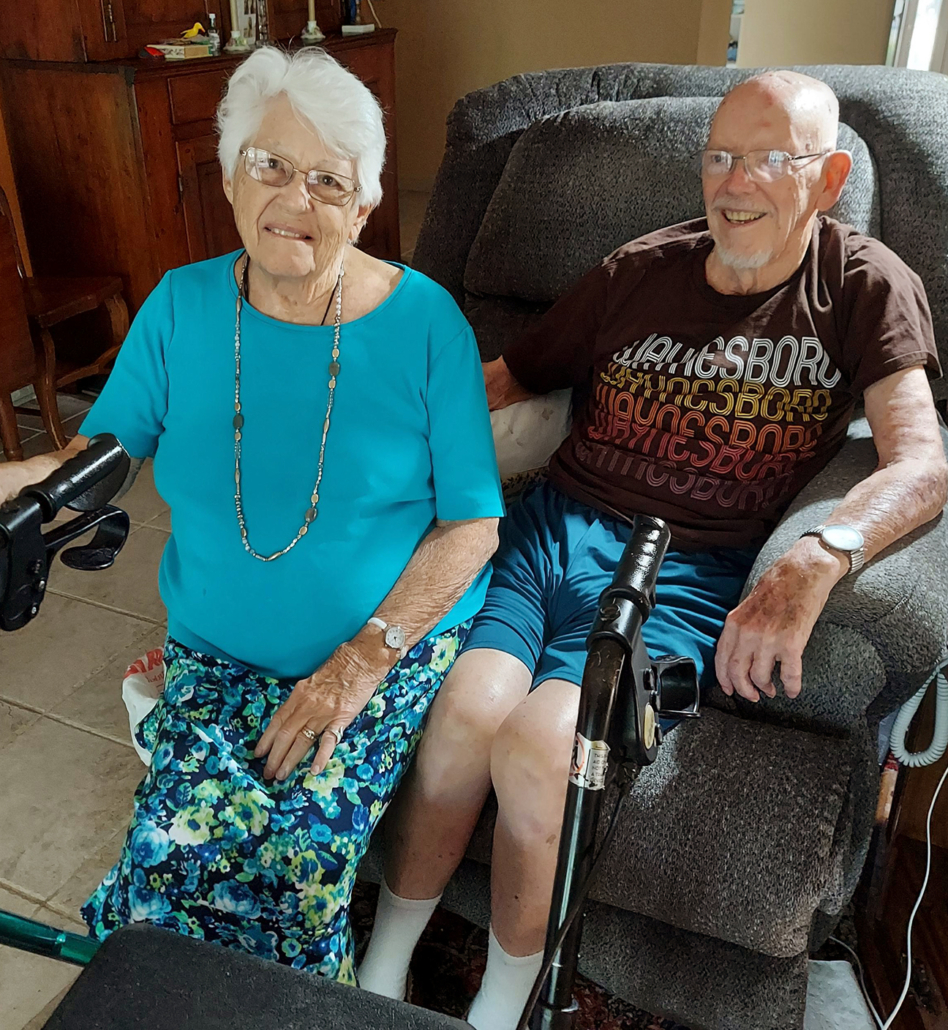 Carol and Joe Moomaw of Mechanicsburg have known and loved each other all of their lives. As children they played together with Joe often pulling Carol’s ponytail to get her attention. The couple dated throughout high school with each going their separate ways after graduation. Some years later, Carol and Joe reunited and married after a six-week courtship. Through their friendship, love and respect for one another, they have created a steadfast bond to sustain life’s challenges. Two years ago, Joe was diagnosed with Lewy body dementia and is receiving services from Homeland Hospice, a hospice program that serves communities throughout Central Pennsylvania
Carol and Joe Moomaw of Mechanicsburg have known and loved each other all of their lives. As children they played together with Joe often pulling Carol’s ponytail to get her attention. The couple dated throughout high school with each going their separate ways after graduation. Some years later, Carol and Joe reunited and married after a six-week courtship. Through their friendship, love and respect for one another, they have created a steadfast bond to sustain life’s challenges. Two years ago, Joe was diagnosed with Lewy body dementia and is receiving services from Homeland Hospice, a hospice program that serves communities throughout Central Pennsylvania Bravery and honor are words reserved for the select few who have risked their lives in service of our country. For United States Air Force and Navy veteran Donald McClarren of Boiling Springs these are the words he lived by during his time as a Prisoner of War in North Korea. A humble and soft-spoken man, Donald may dismiss the word hero to describe him, but he is all of this and more to those who know and served with him.
Bravery and honor are words reserved for the select few who have risked their lives in service of our country. For United States Air Force and Navy veteran Donald McClarren of Boiling Springs these are the words he lived by during his time as a Prisoner of War in North Korea. A humble and soft-spoken man, Donald may dismiss the word hero to describe him, but he is all of this and more to those who know and served with him.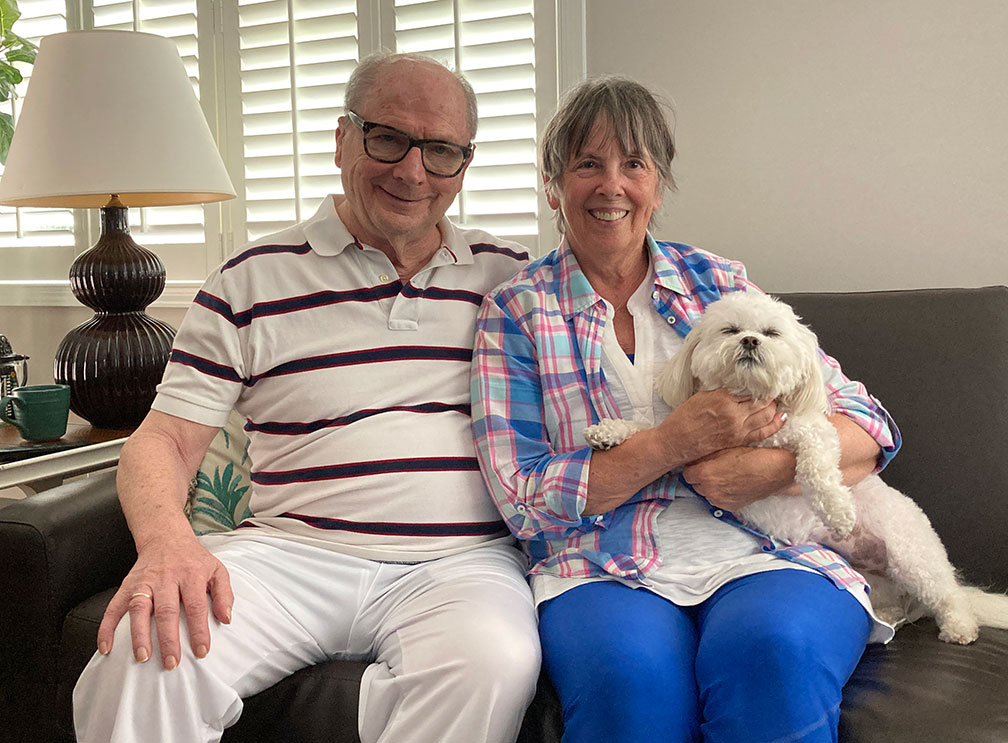
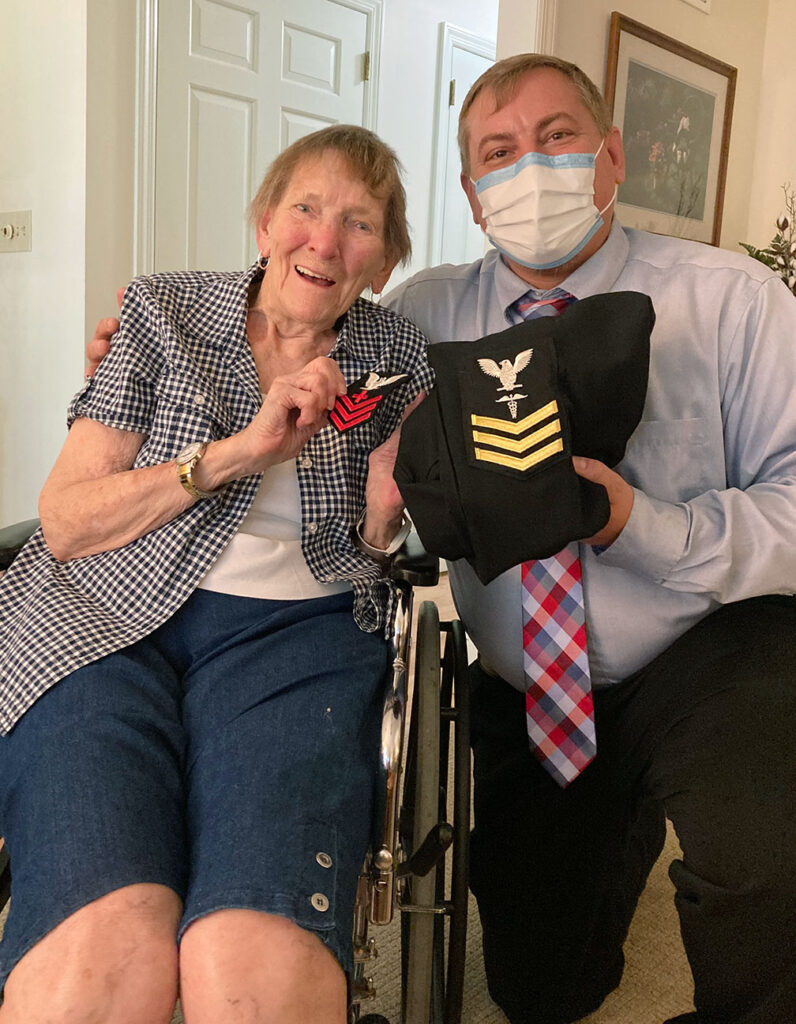 A remarkable life is not given. It is earned through service above oneself and demonstrations of courage and compassion in extraordinary times. Anna Weinfurter’s journey began in Montana and took her across the country while serving in the United States Navy during World War II. While her uniform has been retired for decades, she continues to embody valor, honor and kindness.
A remarkable life is not given. It is earned through service above oneself and demonstrations of courage and compassion in extraordinary times. Anna Weinfurter’s journey began in Montana and took her across the country while serving in the United States Navy during World War II. While her uniform has been retired for decades, she continues to embody valor, honor and kindness.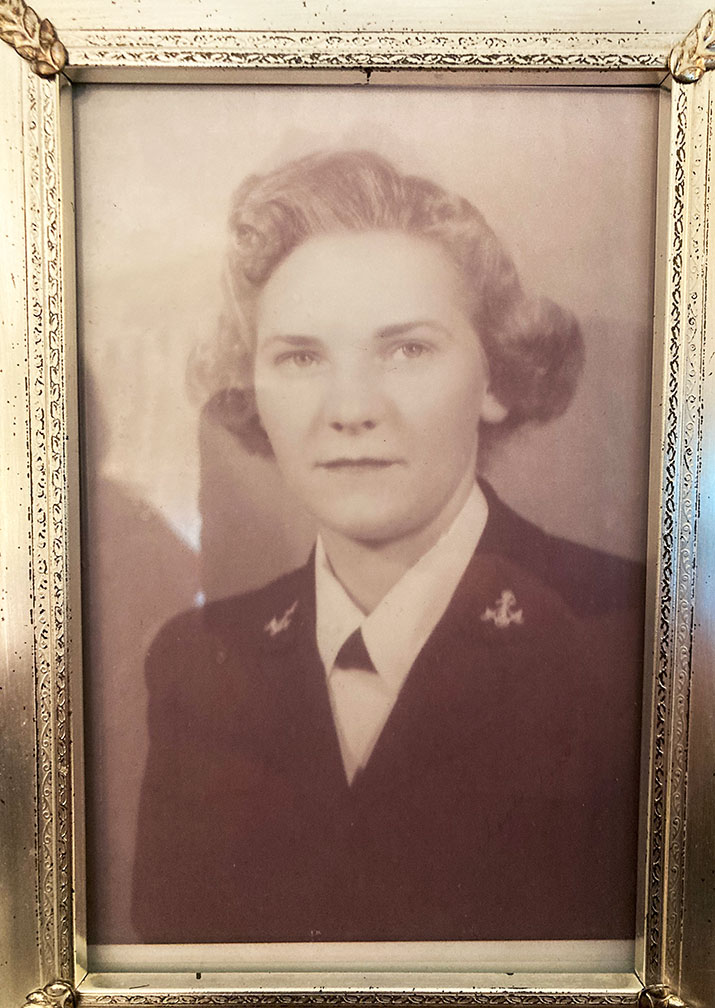 Anna left the family farm for the first time in her life to report for duty in Seattle, Washington in the spring of 1942. She was assigned to Hunter’s College in New York City to complete basic training. Anna and her fellow soldiers traveled by “troop train” from Seattle to New York. A troop train solely transported military personnel. At the time, soldiers were segregated by rank and gender. During the day, Anna completed physical exercises, which included running alongside the train. At night, the train continued its journey to New York while the soldiers slept.
Anna left the family farm for the first time in her life to report for duty in Seattle, Washington in the spring of 1942. She was assigned to Hunter’s College in New York City to complete basic training. Anna and her fellow soldiers traveled by “troop train” from Seattle to New York. A troop train solely transported military personnel. At the time, soldiers were segregated by rank and gender. During the day, Anna completed physical exercises, which included running alongside the train. At night, the train continued its journey to New York while the soldiers slept.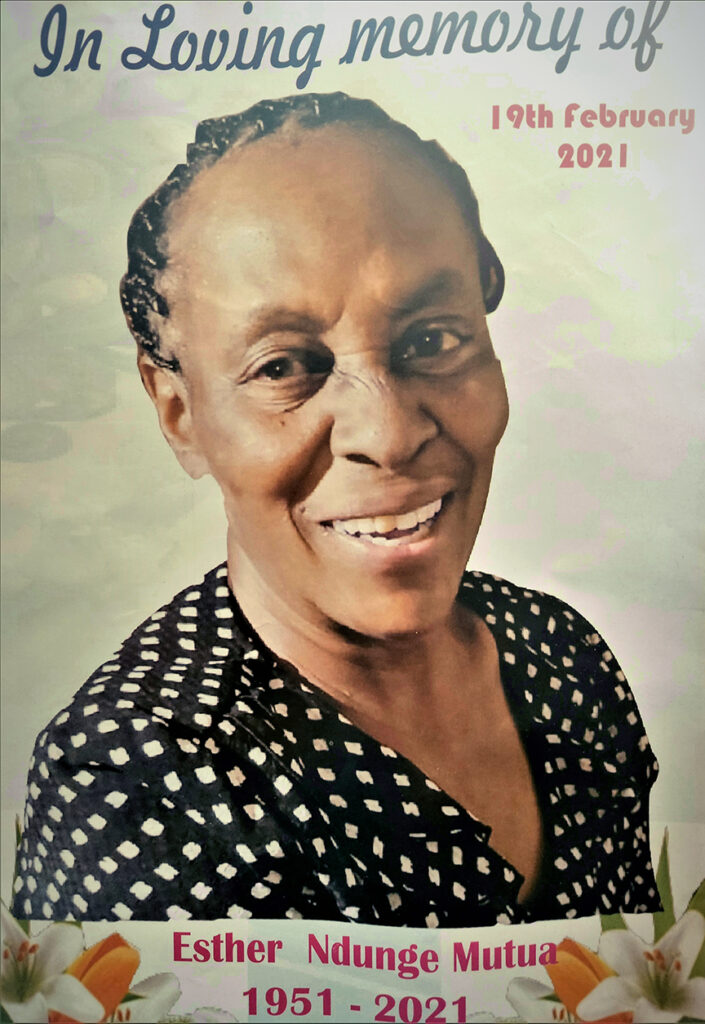 Chinese philosopher Lao Tzu once said, “The journey of a thousand miles begins with one step.” For many of us, taking that first step requires the support and guidance of others. Recently, the staff at Homeland Hospice helped Esther Mutua take that first step to secure medical clearance and support services to travel more than 7,000 miles to her home in Nairobi, Kenya to spend time with her family during her end-of-life journey.
Chinese philosopher Lao Tzu once said, “The journey of a thousand miles begins with one step.” For many of us, taking that first step requires the support and guidance of others. Recently, the staff at Homeland Hospice helped Esther Mutua take that first step to secure medical clearance and support services to travel more than 7,000 miles to her home in Nairobi, Kenya to spend time with her family during her end-of-life journey.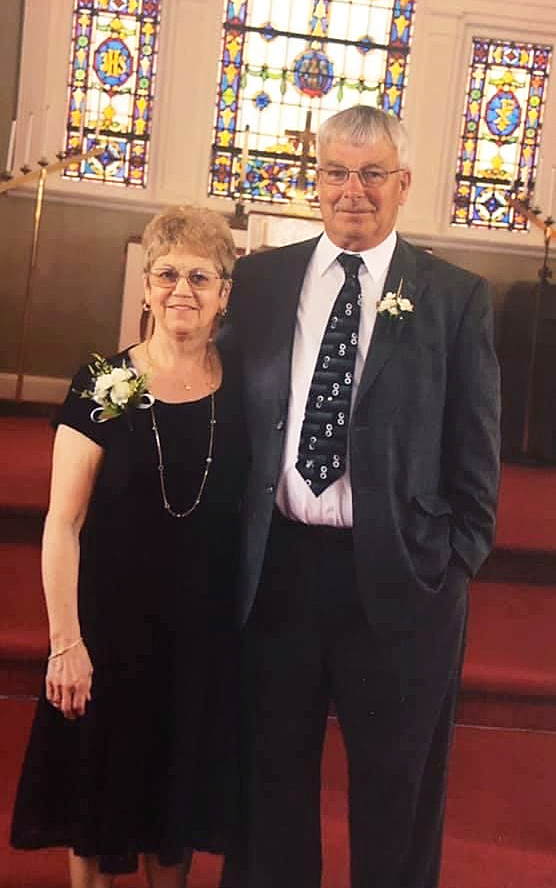 Television commercials portray Valentine’s Day as a time of grand gestures with red roses, jewelry and expensive dinners as the manner to express one’s love. Pete and Pat Crosson of McVeytown always knew what really mattered in love and lived everyday like it was Valentine’s Day. The couple demonstrated their love for one another through mutual respect, friendship and support for 57 years. They joined together as two individuals in their teenage years to form one unshakable and remarkable union.
Television commercials portray Valentine’s Day as a time of grand gestures with red roses, jewelry and expensive dinners as the manner to express one’s love. Pete and Pat Crosson of McVeytown always knew what really mattered in love and lived everyday like it was Valentine’s Day. The couple demonstrated their love for one another through mutual respect, friendship and support for 57 years. They joined together as two individuals in their teenage years to form one unshakable and remarkable union.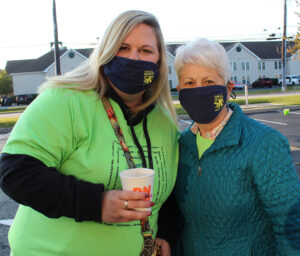 During Pete’s final days, he frequently asked for Nurse Bethany to come to his aid. Bethany remained vigilant by his side for emotional support, allowing this hospice team to handle his direct care. While she wondered why he referred to her as a nurse, this warm and loving term of endearment let her know her grandfather saw Bethany as someone who would always be there for him.
During Pete’s final days, he frequently asked for Nurse Bethany to come to his aid. Bethany remained vigilant by his side for emotional support, allowing this hospice team to handle his direct care. While she wondered why he referred to her as a nurse, this warm and loving term of endearment let her know her grandfather saw Bethany as someone who would always be there for him.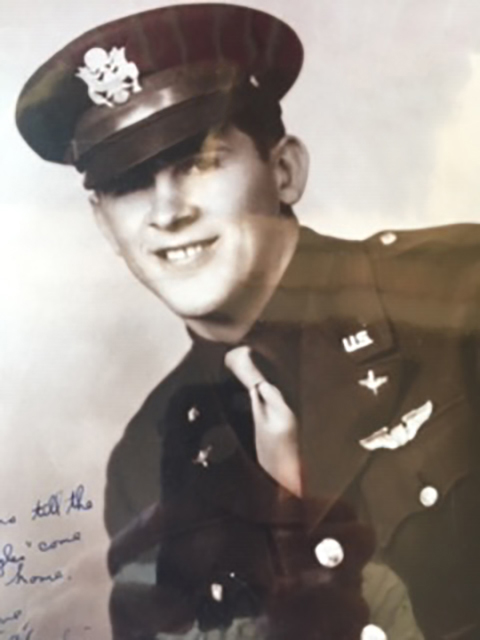 Major Henry “Hank” Heim planned every detail of his funeral. Similar to the funeral of President John F. Kennedy, Hank wanted his final farewell to represent valor, honor and duty with representation from active service members. For Hank, his funeral would be a love-letter to the country he honored and served.
Major Henry “Hank” Heim planned every detail of his funeral. Similar to the funeral of President John F. Kennedy, Hank wanted his final farewell to represent valor, honor and duty with representation from active service members. For Hank, his funeral would be a love-letter to the country he honored and served.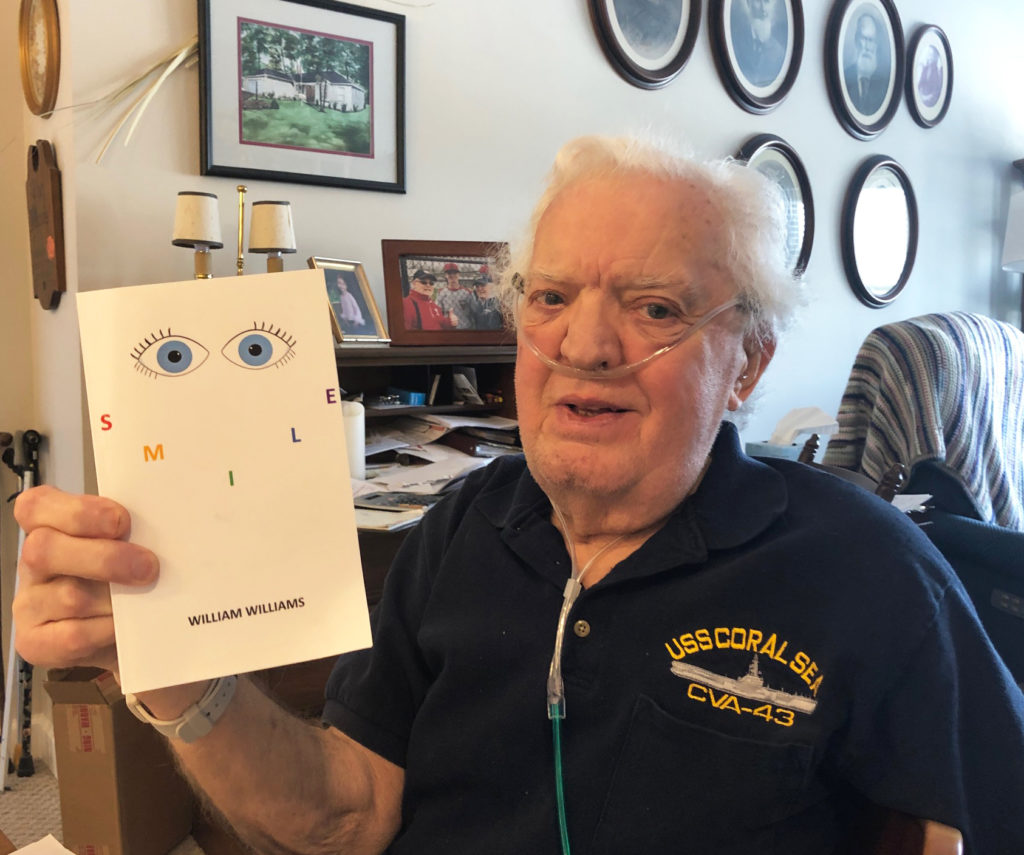 Bill Williams is a master storyteller with a love of news, history and family. For Bill, knowing the joys and challenges of his ancestors has fueled his career ambitions and love of a good story.
Bill Williams is a master storyteller with a love of news, history and family. For Bill, knowing the joys and challenges of his ancestors has fueled his career ambitions and love of a good story.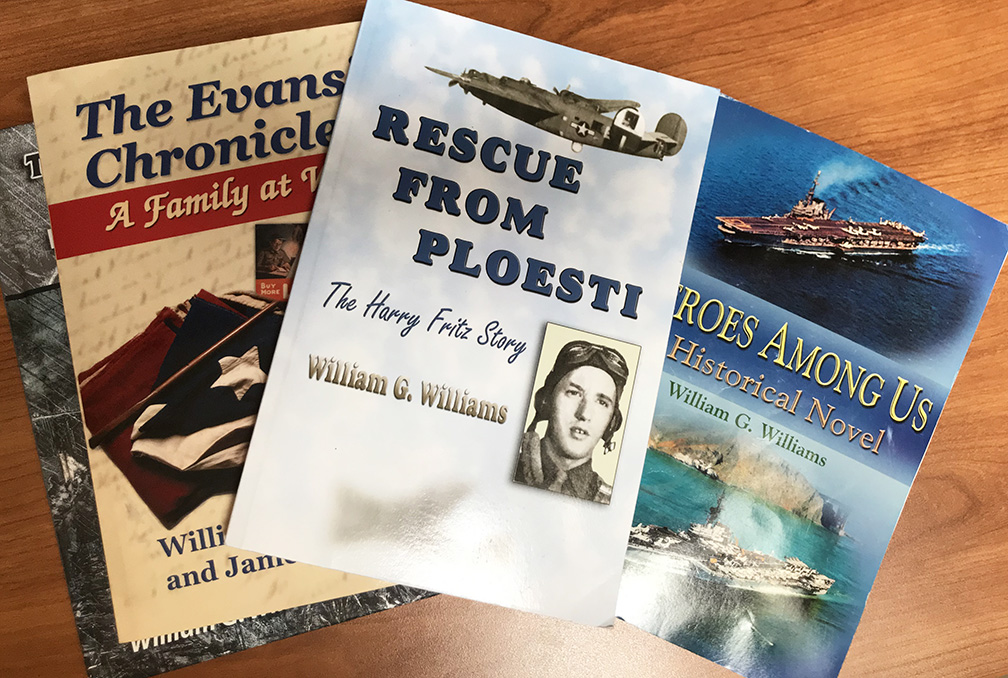 Following his retirement, Bill focused his time and talents on writing historical novels, a play, one nonfiction book and an ongoing column for a Welsh newspaper.
Following his retirement, Bill focused his time and talents on writing historical novels, a play, one nonfiction book and an ongoing column for a Welsh newspaper.